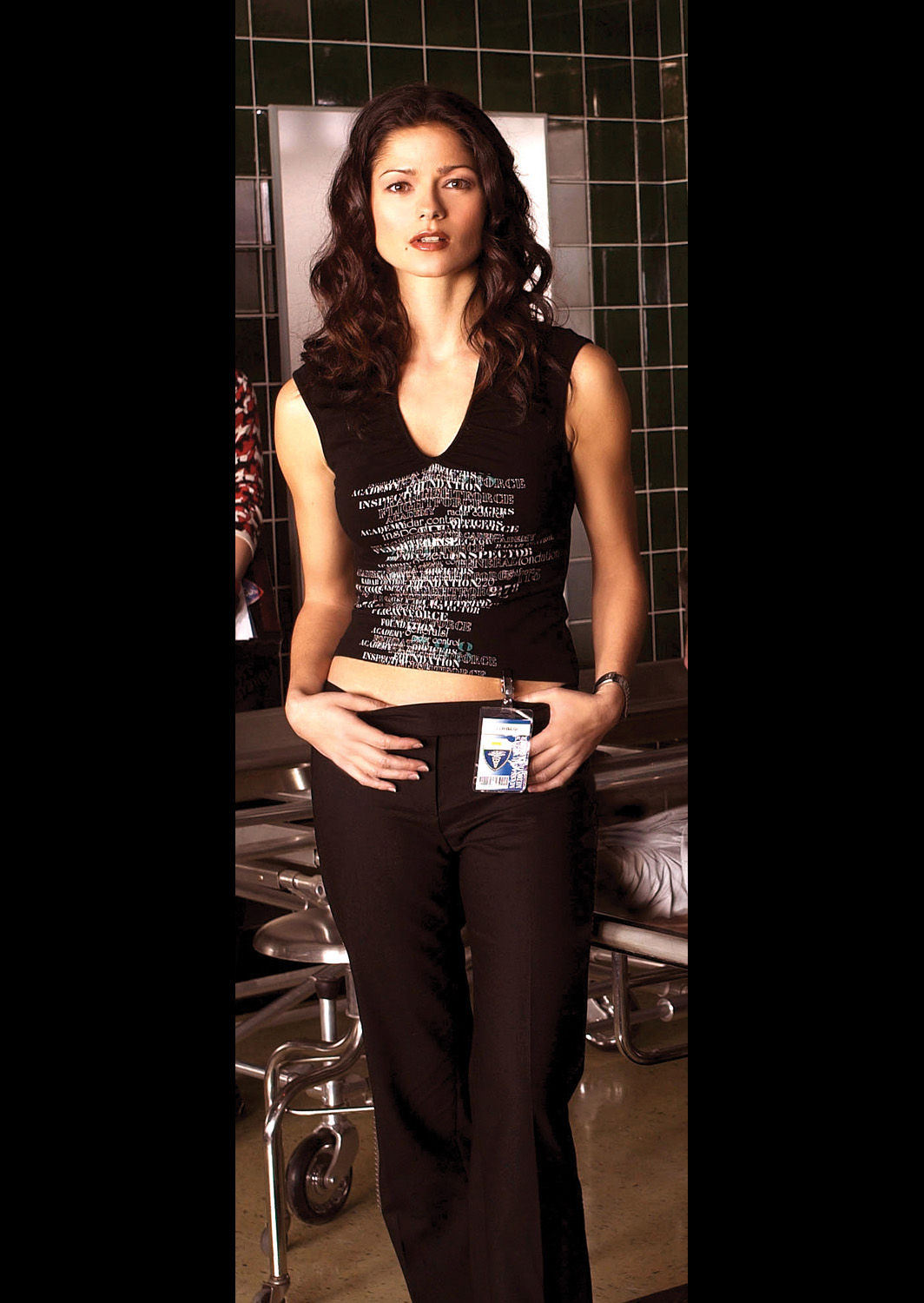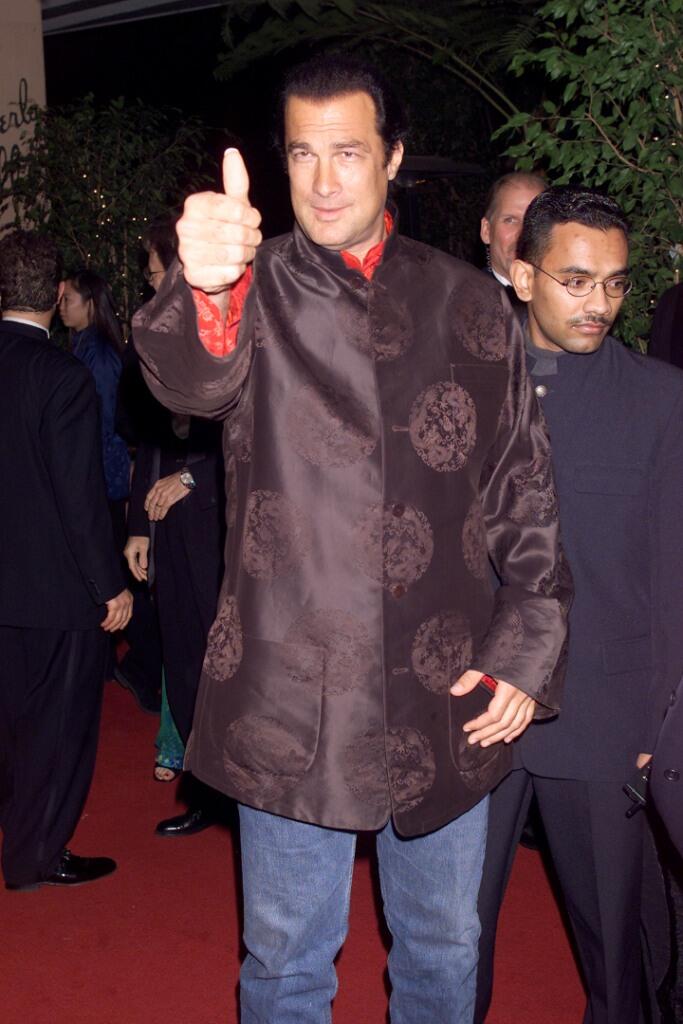How does having friends, especially family in the mob make one morally gray? He's not endorsing or responsible for their actions. I would definitely call his character in those movies morally gray, but not because of what his family does. It's because he neglects and arguably cheats on his wife in Above the Law, and abuses his powers in Out For Justice, even harming innocents.
A cop whose uncle is a mafia boss is quite the picture of conflict of interest, no? You think that Seagal knows
nothing of his uncle's illegal activities? Yet, he never turns him in or acts against him in his capacity as a cop, despite his duty as an officer of the law to put criminals behind bars. His loyalties are split, to the police on one side and to his family (which is
the family) on the other. I might even describe such a situation as...morally gray. And this is to say nothing of his law-bending if not law-breaking actions ("Illegal wire taps, unauthorized surveillance") which get him suspended during the course of the film. This movie is the definition of morally gray (hence the title
Above the Law).
As for the "cheats on his wife" bit, I've always considered that a stupid line of interpretation. He's close with Jax the way that Mulder and Scully were close in
The X-Files and the way that Stabler and Benson were close in
SVU.
What are his morally gray features in Under Siege, Fire Down Below, or Sniper Special Ops?
If you want to get pedantic, I can go there. Starting with his prime run from
Above the Law to
Exit Wounds - and excluding minor shit like
Executive Decision and
My Giant as well as his only DTV blemish during this run, the God awful
The Patriot - we've got 10 films. In 7 of those films, there's no question that he's a morally gray character. 7 out of 10 is a 70% rate of playing morally gray characters. Already, I'm on solid ground claiming that he predominantly plays morally gray characters. (And, for the sake of the pun, you claiming otherwise would place you on deadly ground.) For the 3 films where it's not clear-cut -
Under Siege,
Under Siege 2, and
Fire Down Below - I'd say that Casey Ryback in
Under Siege and
Under Siege 2 is similar to his character in
Exit Wounds where insubordination and contempt for authority is his character flaw (which begs the question of why someone like Casey Ryback would ever join the Navy with its regimental hierarchy, but that's a script issue) even though, as he does in
Above the Law, you could say that he's fighting for a "higher" sense of law/justice (hence, again,
Above the Law). As for
Fire Down Below, he's an undercover operative infiltrating a small, peaceful hick town. Not only does he bring violence into their world - I know, I know, it's not
his fault, but still - he lies about who he is and why he's there, and not just in the abstract to random strangers, but to a woman he develops feelings for and who develops feelings for him, and who is hurt by his deception. Sure, it's his job, but what would a Seagal film be without
some sort of ethical dilemma? I'll tell you: It wouldn't be a Seagal film. Because Seagal's films at their best always involve difficult choices for his characters.
Now, beyond his prime run from
Above the Law to
Exit Wounds, I don't really care so much, and in the last 10 years, I haven't seen many of his DTV films. But I check in with him periodically, and I
have seen everything up to
Maximum Conviction, and I will note that not only would be go on to play out-and-out villains, which was a new wrinkle and which adds extra layers of ethical complexity to his films and his persona, he also continues to play morally gray protagonists, from the undercover agent (who, again, has to lie and who has to be comfortable in the criminal underworld) in
Half Past Dead to the reformed professor who once was a high-profile thief who spent time in prison in
Out for a Kill, a former CIA agent who quit after a botched mission that resulted in a woman's death in
Belly of the Beast, a former CIA agent who gets in the middle of a gang war to avenge his son's death and who is cool with the gangsters because his code dictates personal revenge not general justice in
Urban Justice, and the bought-and-paid-for loser drunk cop who becomes a hired killer for a vigilante squad in
Pistol Whipped.
Again, if you try to dispute the claim that morally gray characters and stories are the bedrock of Seagal's filmography, then you just haven't been paying attention.





